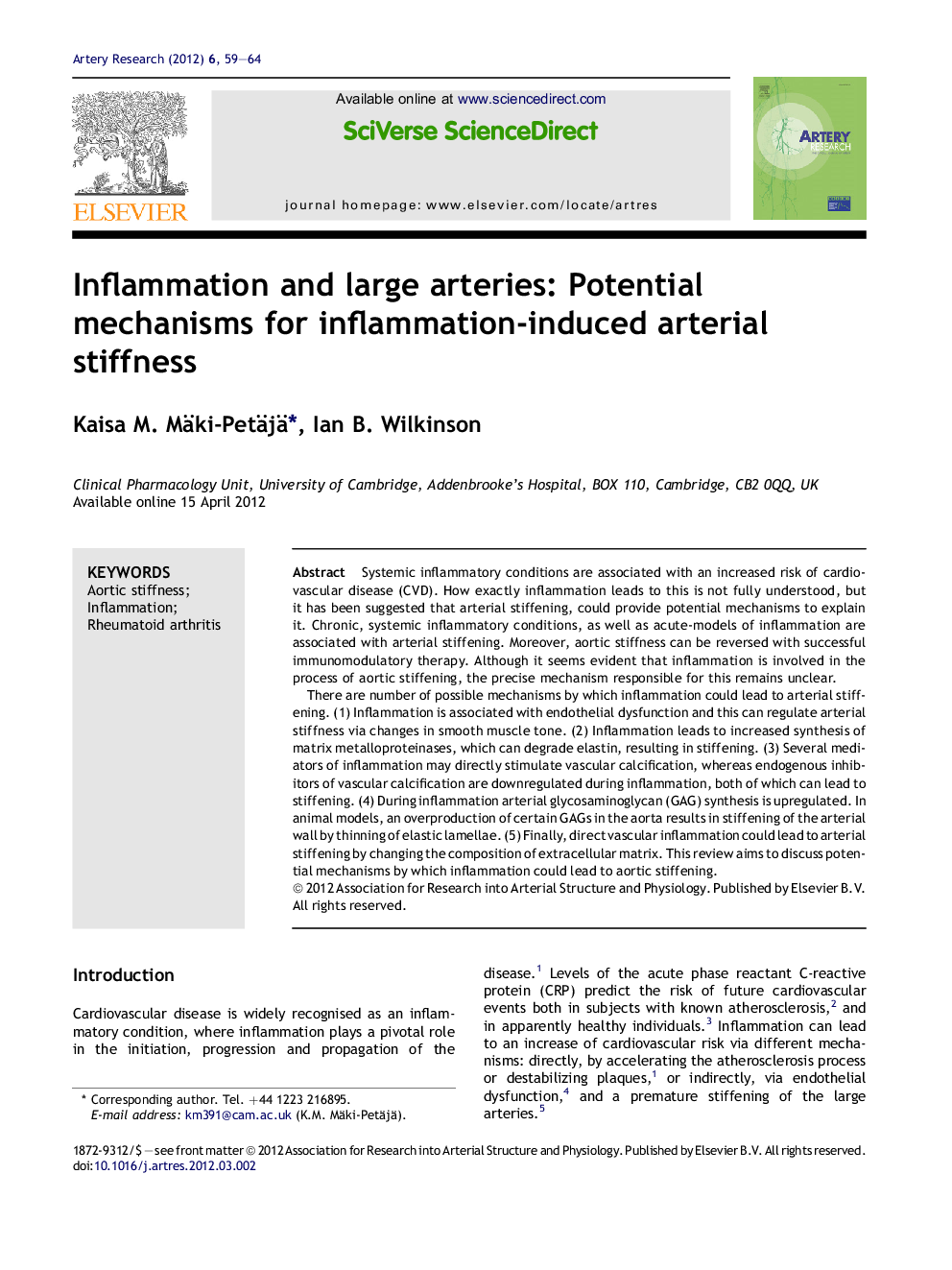| Article ID | Journal | Published Year | Pages | File Type |
|---|---|---|---|---|
| 2891920 | Artery Research | 2012 | 6 Pages |
Systemic inflammatory conditions are associated with an increased risk of cardiovascular disease (CVD). How exactly inflammation leads to this is not fully understood, but it has been suggested that arterial stiffening, could provide potential mechanisms to explain it. Chronic, systemic inflammatory conditions, as well as acute-models of inflammation are associated with arterial stiffening. Moreover, aortic stiffness can be reversed with successful immunomodulatory therapy. Although it seems evident that inflammation is involved in the process of aortic stiffening, the precise mechanism responsible for this remains unclear.There are number of possible mechanisms by which inflammation could lead to arterial stiffening. (1) Inflammation is associated with endothelial dysfunction and this can regulate arterial stiffness via changes in smooth muscle tone. (2) Inflammation leads to increased synthesis of matrix metalloproteinases, which can degrade elastin, resulting in stiffening. (3) Several mediators of inflammation may directly stimulate vascular calcification, whereas endogenous inhibitors of vascular calcification are downregulated during inflammation, both of which can lead to stiffening. (4) During inflammation arterial glycosaminoglycan (GAG) synthesis is upregulated. In animal models, an overproduction of certain GAGs in the aorta results in stiffening of the arterial wall by thinning of elastic lamellae. (5) Finally, direct vascular inflammation could lead to arterial stiffening by changing the composition of extracellular matrix. This review aims to discuss potential mechanisms by which inflammation could lead to aortic stiffening.
